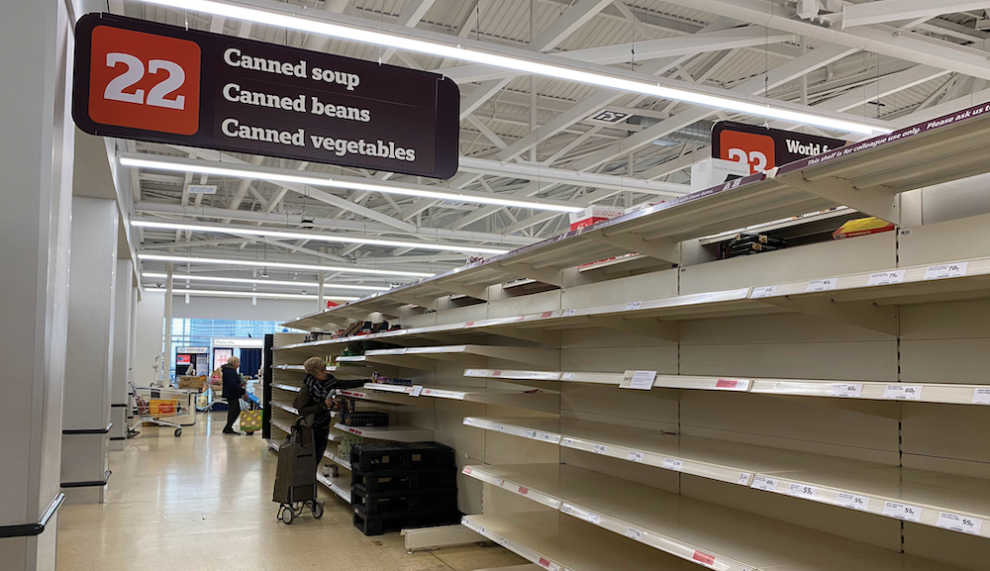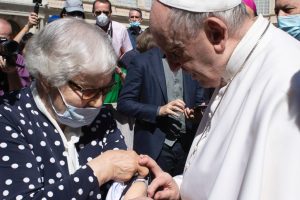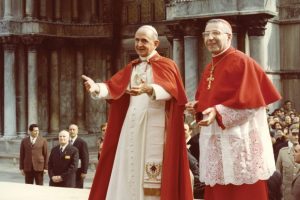I write from New York City three weeks after life has been disrupted and upended in ways that I could never have imagined. The novel coronavirus and the threat of COVID-19 have suddenly forced upon us all dramatic changes in how we work (or even if we are able to work), socialize, communicate, shop, and worship.
Like almost all of my peers, suddenly I was told to shift to remote teaching. The given challenge was to use technologies like Zoom—in which many of us are now mini-experts—to communicate the content of our courses. The buzzword was academic continuity, that is, to use different means but to still deliver our “product.” The task was presented as simply learning new technologies and pedagogical techniques to do what we have already been doing.
Something parallel happened elsewhere when livestreamed Masses replaced in-person worship and takeout options substituted for on-site restaurant dining. Likewise, the focus was on continuity, doing the same thing only in a different way.
But this continuity approach soon gave way to the unsettling realization that our time is marked by deep discontinuities. The challenge of remote learning, teaching, socializing, and praying is that it is remote. There is no way to replicate the vibrancy and intimacy of physical presence on a computer screen, no matter how fancy the graphics or creative the backgrounds.
More to the point, we are challenged with deeper disruptions than a mode of service delivery. We are in the midst of a global crisis that is without precedent or analogue in living memory. (Most of us were not alive during the 1918 flu pandemic.) Rarely has all of humanity had to contend simultaneously with a common threat. The magnitude of the upheavals has been, and in all likelihood will continue to be, immense and overwhelming. The drastic loss of family income, the sudden cessation of comforting rituals, the unprecedented strains on our health and public welfare systems, and the catastrophic loss of life—all of these tax our energies and spirits in ways that make talk of “continuity” and a speedy return to “normal” and “business as usual” sound more and more naive, if not delusional.
The Christian ethical tradition offers valuable insight for such deep uncertainty. It speaks of the virtue of gnome (pronounced no-may), a strange word for unusual times. It’s a Greek word that essentially means the ability to recognize and reason well in an exceptional or unfamiliar situation. St. Thomas Aquinas teaches that we need gnome because “it happens sometimes that something has to be done that is not covered by the common rules of action.”
When we confront situations without precedent, gnome—what we might call “exceptional prudence”—is that graced virtue that works with imagination and creativity in the face of the novel, the new, and the unprecedented. It enables us to invent new wheels for new situations and not rely upon “tried and true” solutions to entirely new problems. Exceptional prudence helps us move into new situations without nostalgic longing for a return to a familiar past or paralyzing despair over a looming future. Instead, we can trust that we have the capacity to reason and live well even when faced with the unknown and unknowable.
The global pandemic could mark a new era of human history, one that calls for new ways of thinking, living, and praying. We may need to develop different ways of being church. We need new understandings of American identity to overcome narrow nationalistic instincts and accept that we are interdependent global citizens. There may be no return to “normal” or the way things were before. (“Normal,” if we are honest, was not all that healthy or life-giving.)
It is natural to be afraid in the face of the unexpected, the unusual, and the unprecedented. Our faith tradition reminds us that we have the grace needed to face and embrace the future with confident assurance. Our hope is grounded in God’s own promise, the God who proclaims, “See, I am making all things new” (Rev. 21:5).
This article also appears in the June 2020 issue of U.S. Catholic (Vol. 85, No. 5, pages 40-41). Click here to subscribe to the magazine.
Image: Unsplash














Add comment